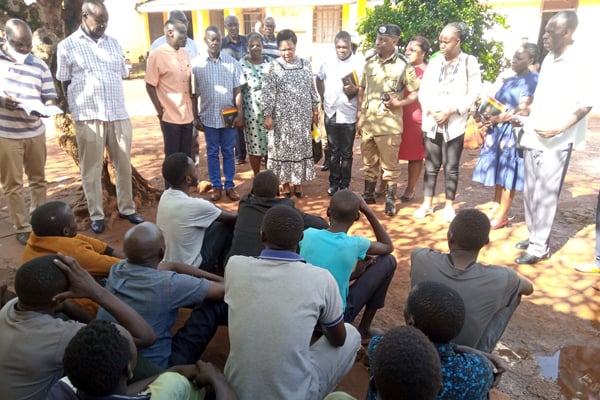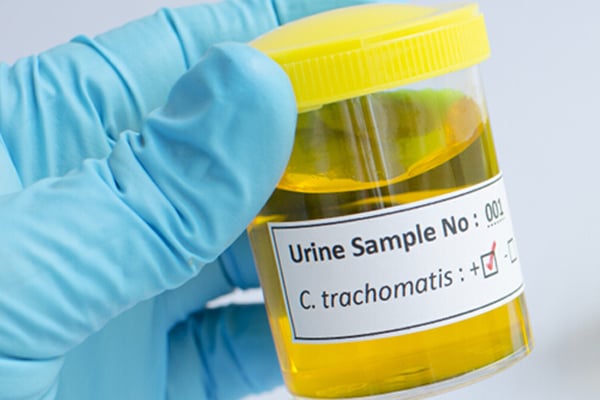STIs eating up inmates at Gulu, Amuru prison cells

Member of the Parliamentary Committee on HIV/Aids interact with inmates at Lira Central Prison at the weekend. PHOTO | BILL OKETCH
What you need to know:
- The Parliamentary Committee on HIV/Aids says the infections were spiralling due to poor hygiene and deliberate failure to conduct medical examinations of inmates before detention.
Prison authorities in the north are grappling with severe outbreak of Gonorrhoea and Syphilis among inmates.
While hundreds of inmates are said to have sexually-transmitted diseases, this publication has learnt that authorities lack the necessary treatment protocol.
During a visit to four different prison facilities at the weekend, the Parliamentary Committee on HIV/Aids discovered that besides the increase in the HIV/Aids positivity rates, inmates were suffering from Gonorrhoea and Syphilis, including other urinary tract infections.
The prison facilities include Kaladima Prisons (Amuru), Gulu Central Prison, Kitgum Central Prison and Kiryandongo Central Prison.
In an interview with this this publication, Ms Sarah Kayagi, the committee chairperson, said while Gonorrhoea cases were high among inmates in Kiryandongo and Gulu central prisons, Syphilis cases were high among inmates at Kaladina Prison.
Ms Kayagi said the infections were spiralling due to poor hygiene and deliberate failure to conduct medical examinations on inmates before detention.
“But we were able to establish that these STIs are just like HIV, these inmates come into detention with them and we found that they were not being tested against these diseases while they are admitted, and that is how the infected ones spread to the rest,” she said.
In Amuru, the committee found that the inmates at Kaladina Prison were also suffering acute water shortages.
“In Amuru, they did not have any source of drinking water and they drank and used unprotected water. Having more than 186 inmates and have no water; you have washrooms (urinals and bathrooms) that you need to wash every time, it is very difficult,” Mr Linos Ngompek, another committee member, said.
Whereas the prison facilities have ARVs (anti-retroviral drugs) , the authorities told the committee that they lacked antibiotics and other drugs to manage STIs.
“But even where they are referred, they said no drugs were [there] forcing them to spend a lot of money procuring those drugs locally,” Ms Kayagi said.
Mr Alfred Alula, the Gulu Central Prison officer-in-charge, told the committee that the facility had initiated constant surveillance among inmates and their accommodation facilities to manage the spread of the infections.
“The arrangement caters for all their wellbeing, especially mental illness cases but when there are incidences of rape etc, or homosexuality, we respond to it instantly. We have leaders inside who are very keen on those behaviours. We take constant reports on how each of them sleeps and they are safe for now,” Mr Alula said.




